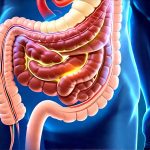Bloating is an incredibly common experience; most people will deal with it at some point in their lives. It’s often dismissed as simply uncomfortable – a temporary nuisance after enjoying a particularly large meal or indulging in certain foods. However, when bloating becomes frequent and persistent, it raises questions beyond mere discomfort. Is this constant distension merely irritating, or could it be impacting something more fundamental like our body’s ability to absorb the nutrients we need from food? The relationship between frequent bloating and nutrient absorption is complex, often interwoven with underlying digestive issues and individual sensitivities. Understanding this connection requires a deeper dive into how our digestive system works, what causes chronic bloating, and how these factors might interfere with the vital process of turning food into usable energy and building blocks for health.
The gut is an incredibly sophisticated system designed to efficiently extract nutrients from everything we eat. But it’s also surprisingly vulnerable – susceptible to disruption by a variety of factors, including diet, stress, medications, and underlying conditions. When bloating consistently interferes with this process, it’s not just about feeling full or uncomfortable; it’s about potentially limiting the vital nourishment our bodies require. This article will explore the intricate link between frequent bloating and nutrient absorption, examining how various mechanisms can be affected, what signs to look for, and strategies for supporting healthy digestion and optimal nutrient uptake. We aim to provide a comprehensive overview that empowers you to understand your digestive health better and seek appropriate support when needed.
The Digestive Process & Potential Disruption Points
The process of digestion is far more than just breaking down food. It’s a multi-stage operation beginning in the mouth with mechanical breakdown and enzyme activity, continuing into the stomach where further churning and acid exposure occur, then moving to the small intestine – the primary site of nutrient absorption. Finally, undigested material moves into the large intestine for water reabsorption and waste elimination. Each stage is crucial, and disruption at any point can lead to bloating and potentially impact how well nutrients are absorbed. For example:
- Insufficient stomach acid production (hypochlorhydria) can hinder protein digestion and mineral absorption, leading to undigested food fermenting in the gut and causing gas and bloating.
- Rapid transit time through the digestive tract doesn’t allow sufficient time for nutrient breakdown and absorption. Conversely, slow motility can lead to fermentation and bacterial overgrowth contributing to bloating.
- Damage to the intestinal lining (often referred to as “leaky gut”) impairs nutrient absorption by reducing surface area and increasing permeability, allowing larger undigested particles into the bloodstream.
Bloating frequently occurs when excess gas builds up in the digestive tract. This can result from several factors: swallowing air while eating, certain food intolerances causing fermentation of undigested carbohydrates, or imbalances in gut bacteria producing excessive gas as a byproduct of their activity. While occasional bloating is normal, persistent bloating suggests an underlying issue that needs addressing – and frequently is linked to compromised nutrient absorption pathways. The digestive system relies on a delicate balance, and when this equilibrium is disrupted, the consequences can extend beyond just discomfort. How Reflux Can Affect Emotional Well-Being Over Time highlights how digestive issues impact overall wellbeing.
Common Causes of Frequent Bloating & Their Impact on Absorption
Several conditions can contribute to frequent bloating, many of which directly or indirectly affect nutrient absorption. Irritable Bowel Syndrome (IBS) is a common culprit characterized by abdominal pain, bloating, and altered bowel habits. Individuals with IBS often experience malabsorption issues due to increased intestinal permeability or alterations in gut motility. Similarly, Small Intestinal Bacterial Overgrowth (SIBO), where excessive bacteria reside in the small intestine, can interfere with nutrient absorption as bacteria compete for nutrients and produce gases that cause bloating.
Food intolerances – like lactose intolerance or gluten sensitivity – are also major players. When someone lacks the enzymes to properly digest certain foods, undigested food ferments in the gut, producing gas and causing bloating. This fermentation process can not only lead to discomfort but also bind nutrients, making them unavailable for absorption. For instance, a deficiency in lactase (the enzyme that digests lactose) means undigested lactose travels to the colon where bacteria ferment it, creating gas and potentially reducing calcium absorption. Chronic inflammation, often underlying many digestive disorders, further exacerbates these issues by damaging the intestinal lining and hindering nutrient transport. Can frequent nausea be caused by acid reflux alone? discusses related symptoms. Addressing these root causes is essential for both alleviating bloating and restoring optimal nutrient absorption.
Identifying Nutrient Deficiencies Related to Bloating
Frequent bloating doesn’t always present with obvious signs of nutrient deficiency. Symptoms can be subtle and develop gradually, making it difficult to connect them to digestive issues. However, certain deficiencies are more common in individuals experiencing chronic bloating due to impaired absorption. Recognizing these potential links is crucial for targeted support:
- Iron Deficiency: Poor stomach acid production or intestinal inflammation can reduce iron absorption, leading to fatigue, weakness, and pale skin. Iron deficiency anemia is frequently seen in people with digestive disorders like celiac disease or Crohn’s disease which are often associated with bloating.
- Vitamin B12 Deficiency: B12 requires intrinsic factor (produced in the stomach) for absorption. Conditions affecting stomach acid production, SIBO, or intestinal damage can all impair B12 uptake leading to neurological symptoms and fatigue.
- Fat-Soluble Vitamin Deficiencies (A, D, E, K): These vitamins require fat for absorption, so conditions that interfere with fat digestion – like pancreatic insufficiency or bile acid deficiency – can lead to deficiencies resulting in various health issues, including weakened immunity and bone health problems.
It’s important to note that self-diagnosing nutrient deficiencies is not recommended. Blood tests ordered by a healthcare professional are the most reliable way to assess your nutritional status. If you suspect a deficiency related to bloating, consulting with a doctor or registered dietitian can help determine appropriate testing and supplementation strategies. How Long-Term Use of Antacids Can Affect Nutrient Absorption explains how certain medications can contribute to deficiencies. A comprehensive approach addressing both bloating and underlying nutritional deficits is often necessary for long-term health.
The Gut Microbiome’s Role in Bloating & Absorption
The gut microbiome – the trillions of bacteria residing in our digestive tract – plays a profound role in digestion, immunity, and nutrient absorption. An imbalance in these microbial communities (dysbiosis) can contribute significantly to bloating and impair nutrient uptake. Specific bacterial strains are responsible for breaking down complex carbohydrates that humans cannot digest on their own; when these beneficial bacteria are lacking, undigested carbs ferment in the colon leading to gas production and bloating.
Dysbiosis can also reduce the absorption of essential vitamins and minerals. For example, certain gut bacteria synthesize vitamin K and biotin, while others aid in magnesium absorption. When these bacterial populations are compromised, nutrient deficiencies may develop. Furthermore, an unhealthy microbiome can increase intestinal permeability (“leaky gut”), allowing toxins and undigested food particles to enter the bloodstream triggering inflammation and further disrupting absorption. Can Clutter Affect Digestion and Mind highlights external factors impacting well-being. Supporting a healthy gut microbiome through dietary changes (increasing fiber intake), probiotic supplementation (under guidance of a healthcare professional), and stress management can be a powerful strategy for reducing bloating and enhancing nutrient absorption.
Strategies for Improving Digestion & Nutrient Absorption
Addressing frequent bloating and improving nutrient absorption requires a multifaceted approach. Here are some steps you can take:
- Dietary Modifications: Identify and eliminate food triggers – common culprits include gluten, dairy, FODMAPs (fermentable oligosaccharides, disaccharides, monosaccharides, and polyols), and artificial sweeteners. Consider an elimination diet under the guidance of a registered dietitian to pinpoint sensitivities.
- Digestive Enzyme Support: Supplementing with digestive enzymes (protease for protein digestion, lipase for fat digestion, amylase for carbohydrate digestion) can aid in breaking down food, reducing undigestion and bloating. Always consult a healthcare professional before starting any new supplements.
- Probiotic & Prebiotic Rich Foods/Supplements: Incorporate fermented foods like yogurt (if tolerated), kefir, sauerkraut, and kimchi into your diet to support gut health. Consider prebiotic-rich foods like garlic, onions, asparagus, and bananas to feed beneficial bacteria. Probiotic supplementation may be helpful but should be tailored to individual needs with professional guidance.
- Stress Management: Chronic stress can negatively impact digestion. Incorporate relaxation techniques such as meditation, yoga, or deep breathing exercises into your routine.
- Mindful Eating: Eating slowly and chewing food thoroughly aids in proper digestion and reduces air swallowing.
It’s crucial to remember that digestive health is highly individual. What works for one person may not work for another. How GERD Can Affect Concentration and Focus explores related cognitive impacts. Working with a healthcare team – including a doctor, registered dietitian, and potentially a gastroenterologist – can provide personalized guidance and support tailored to your specific needs and underlying conditions. GERD and Tinnitus: Can Reflux Affect Your Ears? explores less common symptoms of GERD. By addressing both the bloating itself and its potential impact on nutrient absorption, you can take proactive steps towards improved digestive health and overall well-being. GERD and Shakiness: Can Acid Imbalance Affect Energy? explores the energy impacts of acid imbalance. How Reflux Can Affect Emotional Well-Being Over Time highlights the long term emotional consequences.


















